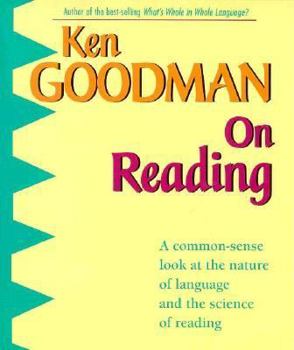On Reading
Select Format
Select Condition 
Book Overview
Ken Goodman's view on reading is widely regarded as the most complete and articulated of any in the world, the basis for much contemporary reading research, theory, and instruction. Indeed, acceptance of Goodman's work is so widespread that his theories have become virtually institutionalized--even as they have prompted controversy.
On Reading offers a complete explanation of the view that many people in and out of the education field have both accepted and denounced, often without fully understanding its sources and significance. At a time when the movement Goodman helped spawn--whole language theory--is under increasing attack, that explanation is both warranted and welcome.
In a clear and engaging style, Goodman explains why he described the reading process as a "psycholinguistic guessing game." He argues that the object of that game is not to recognize letters and words, but to make sense of print: to construct meaning. Among the devices readers use to win that game are miscues, the unexpected responses in oral reading. Many teachers today recognize these "mistakes" as evidence that readers draw upon a wealth of data--graphophonic, syntactic, and semantic--to make sense of print, to predict what comes next, and to construct meaning.
Goodman makes the highly complex process of reading easy to understand. He involves his readers in examining their own reading, and he provides real language examples from real children reading real texts--not research-designed controlled samples. In so doing, he proposes that written language is parallel to and equal with oral language and that it is learned in the same way--and for the same reasons--as oral language.
Both defenders and detractors of Goodman's work acknowledge him as one of the most influential theorists of the twentieth century. On Reading will be of interest to anyone concerned about the state of education in the twenty-first century.






